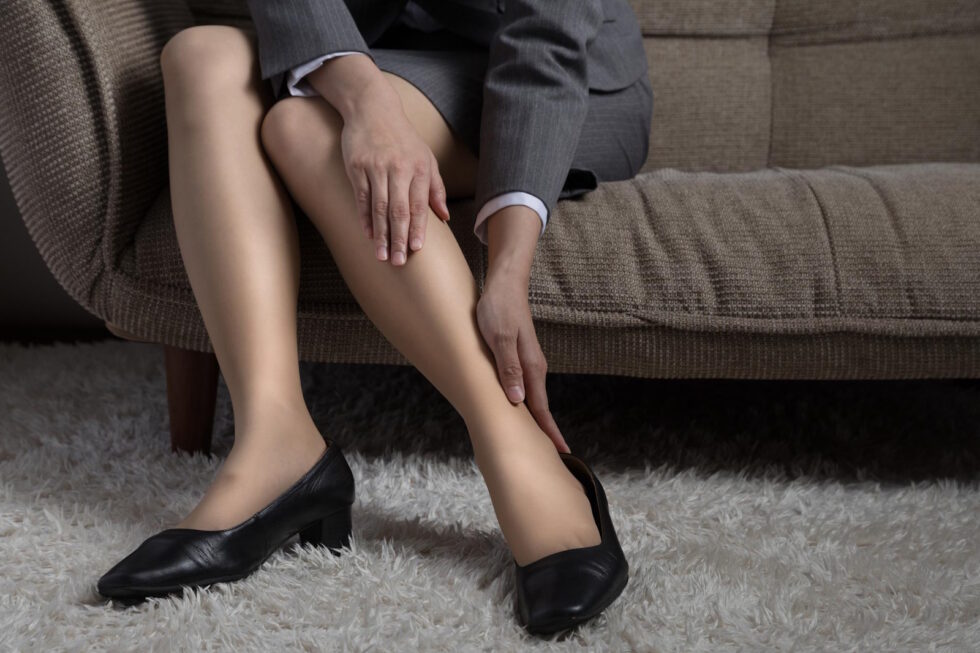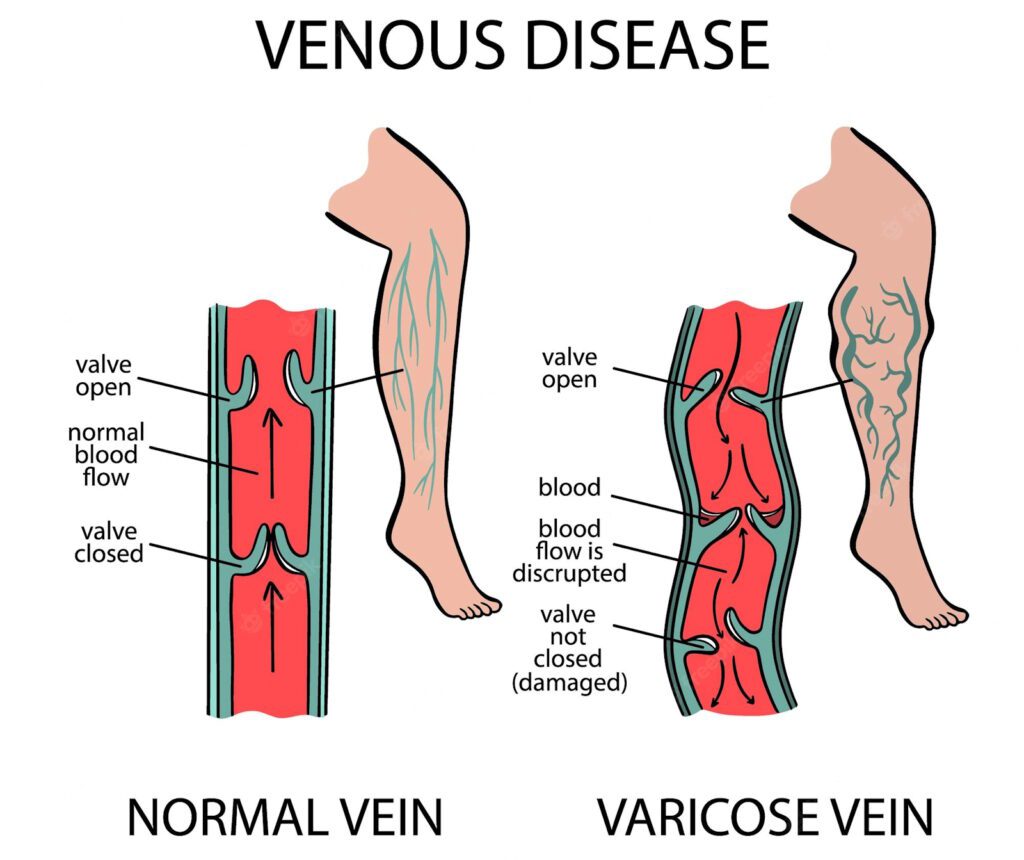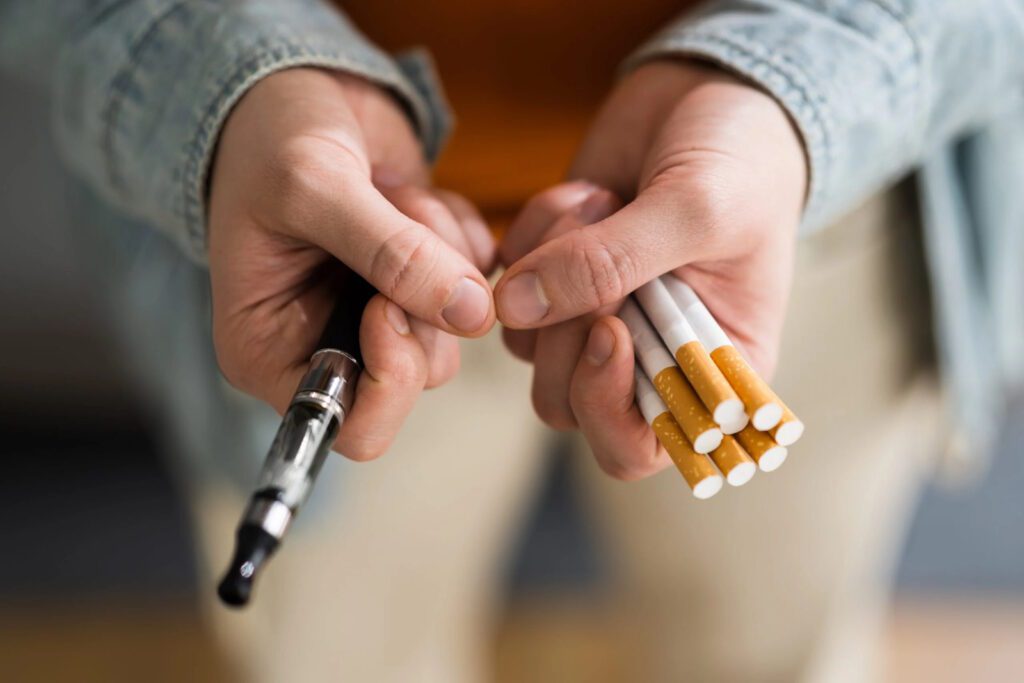7 Bad Habits That Can Make Your Leg Pain Worse
Author: StrideCare Internal Team

Studies show an average of one in every three adults over the age of 45 develops some form of vein disease. For some, the signs are as simple as unsightly spider veins and varicose veins. For others, uncomfortable and debilitating leg pain is a part of everyday life. Beyond the physical pain is the emotional burden, too—especially when you know you can’t enjoy life like you used to. The good news is that relief is possible, through minimally invasive treatment options from our team at StrideCare as well as lifestyle changes designed to eliminate bad habits that can make your leg pain worse.
From walking and running to jumping and standing, your legs are meant to endure a lot to keep you active and mobile at any age. However, if chronic leg pain continues to interrupt your daily routine, it’s time to think about making a few simple changes before your condition becomes worse and requires more serious intervention.
Banish These Bad Habits
It is very possible that you’re stuck in a loop of bad habits causing your leg pain to feel worse. It all comes down to how healthy your veins are. To explain further, your veins are responsible for providing your vital organs with the blood they need to work in an efficient and healthy way. Most of us don’t think about our veins because we don’t imagine having issues with them. But the reality is that our veins can become less efficient at doing their job. Vein valves can malfunction, causing blood to flow forward but also backward in the wrong direction into areas it shouldn’t.

Some of this is because of factors we can’t control, such as age and genetics. But our lifestyle choices—that is, what we eat, how active we are, and more—play a bigger factor than many may think. As a result, a variety of symptoms can set in and wreak havoc on our life.
Are You Experiencing These Vein Disease Symptoms?
- Tired, heavy legs
- Throbbing or stabbing pain
- Swelling and achiness
- Numbness and tingling
- Varicose veins
- Itching, prickling, pulling sensations
- Burning sensations in the feet
- Open sores and ulcers
- Cramping
- Spider veins
7 Bad Habits Affecting Your Leg Pain

- Smoking — Smoking is the leading cause of preventable disease and death in the United States, including its direct impact on the formation of varicose veins and other venous diseases and complications. Beyond vein disease, smoking is known to be a risk factor in the development of chronic pain, and The American Academy of Orthopedic Surgeons found that smokers have a lower tolerance for pain.
- Too much alcohol — If you have chronic leg pain, consider cutting alcohol from your diet. Heavy alcohol consumption causes veins to tighten and restrict, thus limiting blood flow in otherwise healthy veins and worsening existing leg vein symptoms such as swelling, heaviness, and tiredness.
- Forgetting to take your medicine — For people who are already on vascular medication, not taking your pills as prescribed by your doctor can lead to extra, unnecessary leg pain.
- Canceling appointments with your doctor — Leg pain is worsened when you avoid seeing a doctor for your symptoms. Your vascular doctor is your advocate and resource for pain relief. If you schedule routine visits for chronic leg pain, make every effort to keep your appointment.
- Poor diet — Your diet helps maintain blood circulation, cardiovascular health, and the ability to lose weight. Conversely, making poor food choices causes inflammation and increases the likelihood of chronic leg pain. Healthier options include vegetables, fruits, and fiber-rich foods. Drink plenty of water daily, eat your fruits and veggies, and avoid high-fat, high-sugar foods.
- Stress — Unfortunately, everyone has some level of stress in their lives. However, your leg pain depends on how you react to everyday stressors. When you’re stressed out or anxious, your heart beats faster. This causes you to breathe quicker and then tighten your muscles. As your body tenses, the tension intensifies the pain. Find healthy and productive ways to deal with stress to reduce leg pain. Try practicing meditation and mindfulness to cope.
- Not exercising/staying sedentary — The American Heart Association recommends at least 150 minutes per week of moderate-intensity aerobic activity to improve blood flow throughout the body and ease leg pain. Even if exercising is challenging, getting up and moving around is better than no activity at all.

Leg pain isn’t always a cause for concern. We all experience pain in our lives and can usually attribute it to sitting or standing for too long, too much exercise, bad shoes, or other temporary issues. Conversely, if chronic leg pain and related symptoms are an everyday or often occurrence, and won’t go away on their own, you need to visit a vascular and vein specialist.
StrideCare Can Help with Leg Pain
If you’re making lifestyle changes but are still experiencing chronic leg pain, please consider visiting our team at StrideCare. We diagnose and treat using innovative, minimally invasive procedures with small incisions, less pain, and shorter recovery times. Patients suffering from a multitude of vascular conditions that include venous insufficiency, varicose veins, spider veins, diabetic vascular disease, venous ulcers, peripheral artery disease, leg discoloration, lymphedema, restless legs syndrome, and more can benefit from these minimally invasive treatments.
Over the years, our practice has grown significantly and has expanded the specialty team to include vascular surgeons and vein specialists at multiple South Texas locations. This keeps us on the cutting edge of medicine, helping patients avoid traditionally long invasive surgeries used in the past to treat lower-extremity vascular disease. Patients are made to feel comfortable while procedures take place at in-office or outpatient settings.
If your veins need treatment—or you have questions on how to avoid the onset of venous disease—the experts at StrideCare will recommend an individualized plan to help you get the best results. Your provider will perform a physical examination, review your symptoms and medical history, and may suggest a venous ultrasound to further assess blood circulation.
Prior to starting any new treatment or questions regarding a medical condition, always seek the advice of your doctor or other qualified health provider. This information is not a substitute for professional medical advice.
StrideCare serves the South Texas area including Houston, San Antonio, Austin, Round Rock, Bastrop, Brushy Creek, Cedar Park, Converse, Georgetown, Hutto, Kyle, Leander, Marble Falls, New Braunfels, Pasadena, Pearland, Pflugerville, San Marcos, Schertz, Houston, Sugar Land, Katy, Webster, Bay City, Clear Lake, Lake Jackson, The Woodlands, Universal City, Spring, Kingwood, Stafford, Conroe, Texas City, Cypress, League City, Bellaire, and more.


